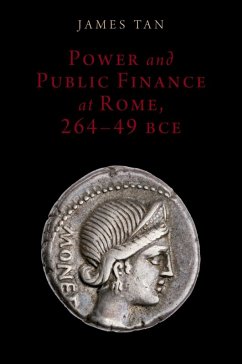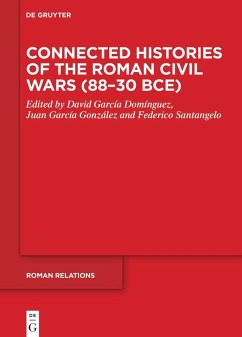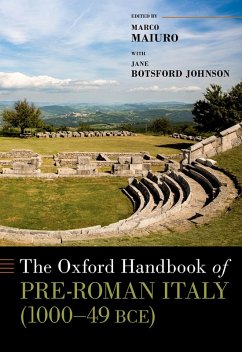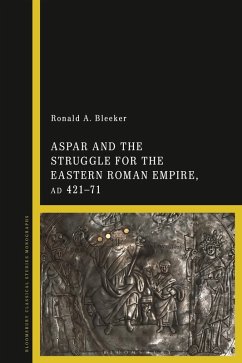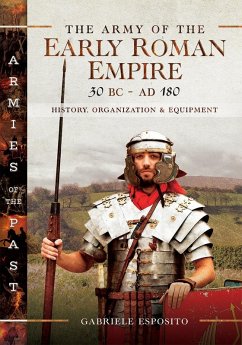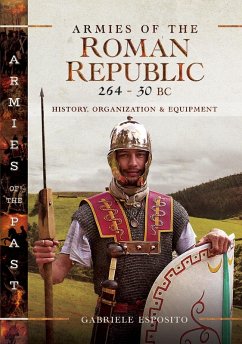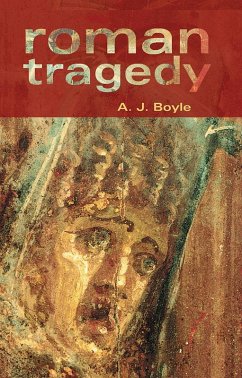
New Perspectives on the Roman Civil Wars of 49-30 BCE (eBook, ePUB)
Versandkostenfrei!
Sofort per Download lieferbar
74,95 €
inkl. MwSt.
Weitere Ausgaben:

PAYBACK Punkte
37 °P sammeln!
Offering new and original approaches to the Roman civil wars of 49-30 BCE, the eleven papers presented here for the first time shed light on this crucial moment in the forging of Roman identity. They engage with a variety of problems and topics in political discourse (diplomacy, the concept of libertas, divine paternity); socio-economic structures (allied rulers, military officials, civil war finances, Agrippa's family); material culture (the coinage of Julius Caesar, the physical remains of Corfinium); and literary commemoration (Sallust on trauma, the lost Histories of Asinius Pollio). The c...
Offering new and original approaches to the Roman civil wars of 49-30 BCE, the eleven papers presented here for the first time shed light on this crucial moment in the forging of Roman identity. They engage with a variety of problems and topics in political discourse (diplomacy, the concept of libertas, divine paternity); socio-economic structures (allied rulers, military officials, civil war finances, Agrippa's family); material culture (the coinage of Julius Caesar, the physical remains of Corfinium); and literary commemoration (Sallust on trauma, the lost Histories of Asinius Pollio). The case studies presented here contribute to our understanding of a period that is just as fundamental for our view of the Romans as it was to the Romans themselves. Arguing for the unity of the period in question, the volume deploys a multiplicity of methodologies to analyse how the trauma of armed conflict and the breakdown of accepted socio-cultural models not only mediated the contemporary experience of Roman civil war, but also left a lasting impression upon how Romans viewed the world. Incisive and critical, these contributions by a diverse team of international researchers, both emerging scholars and leaders in their fields, offer a new window into the world of the late Republic and early Principate.




